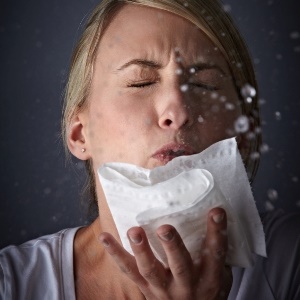
The country – and the world – is continuing to focus on the fight against the Covid-19 coronavirus pandemic, moving with tunnel vision and ploughing human and financial resources into curbing the spread of the infectious virus.
But experts are cautioning against neglecting other crucial health interventions, particularly targeting equally deadly non-communicable diseases (NCDs), as well as the all-important immunisation and vaccination programmes.
NCDs such as hypertension, diabetes, cancer and cardiovascular disease have long been recognised as some of the world’s biggest killers and causes of disability. They are responsible for 41 million deaths a year.
And now, emerging evidence from the Covid-19 pandemic has shown that there are intersections between coronavirus and NCDs.
As of Monday night, there were more than 3.4 million confirmed cases of Covid-19 in the 210 countries and territories it has spread to, according to the World Health Organisation, and more than 239 000 deaths.
South Africa is dealing with the brunt of the intersection between Covid-19 and NCDs, as Health Minister Zweli Mkhize said last week that the most common underlying conditions in those who had died of Covid-19 were hypertension, diabetes and obesity.
“Both Covid-19 and NCDs are indiscriminate killers, reinforcing one another and disproportionately impacting on the poorest communities in the world and the most vulnerable people in every society,” Katie Dain, chief executive of the NCD Alliance, said this week.
“Evidence in science, in healthcare and from governments shows that there are many intersections between NCDs and Covid-19. People who are older than 60 and living with an NCD such as hypertension or obesity are at a substantially higher risk of becoming severely ill or dying from the virus,” she said.
She added that people with compromised immune systems were also at a higher risk of developing complications from Covid-19, as viral infections in people undergoing active chemotherapy or intensive radiotherapy, for instance, could be harder to deal with as those treatments weakened immune systems.
Crucially, Dain said, Covid-19 had brought to the fore the idea that tackling NCDs must be seen as fundamental to the health security of any country, which, to date, hasn’t been the case.
“As ever, during a global crisis, the most vulnerable groups will be hit hardest, and inequality will be exacerbated by Covid-19. Any response to Covid-19 must consider people living with or affected by NCDs ... and mental and neurological conditions,” Dain said.
Bente Mikkelsen, director of the World Health Organisation (WHO) NCD department, echoed Dain’s sentiment during a media telebriefing.
“NCDs are not very often mentioned in Covid-19 strategy media briefings or in key messaging and communication products in countries. The main point is that Covid-19 may compromise access to and quality of healthcare services for NCDs.
This is something we have to document and analyse, and see the full pattern of. We also see that people living with NCDs and communicable diseases have more severe Covid-19 reactions. We need to document, we need to prove and we need to learn more about this.”
To this end, the WHO had formed a working group to provide countries with guidance on NCDs regarding advocacy, prevention, governance, monitoring and treatment.
The NCD Alliance said that, in preparing for national Covid-19 responses, countries needed to recognise the compounding severity caused by NCDs and act to mitigate the impact of Covid-19 in people living with these diseases.
But it’s not only the delivery of healthcare services when it comes to NCD patients that is of concern for experts during this response to Covid-19. Vaccination programmes also matter.
This week was World Immunisation Week as well as Africa Vaccine Week.
The WHO’s Africa region warned that even brief interruptions of vaccination activities made other outbreaks more likely to occur, such as the resurgence of measles in some African counties.
Despite this resurgence, measles preventive mass vaccination campaigns in Chad, Ethiopia, Nigeria and South Sudan have been suspended because of Covid-19, leaving 21 million children, who would have been vaccinated, unprotected.
Hannelie Meyer, chairperson of the National Immunisation Safety Expert Committee of SA, said that the Covid-19 outbreak had highlighted how quickly a new virus could spread when a population has no immunity against it and no vaccine.
“The issue at the moment is that we are all focusing on Covid-19 and we kind of forget about all these other very dangerous life-threatening diseases that there are vaccines for. An example is measles in children, rotavirus and pneumonia. It’s essential for children to access these scheduled vaccines.
“As this whole pandemic continues, health systems all over the world are increasingly becoming overstretched and, the longer it continues, the more we will neglect very essential services such as vaccination. This is especially true now as flu season gets under way,” Meyer said.
“Each year, influenza [the flu] kills 11 000 people in South Africa, 50% of whom are elderly people. And the vaccine remains crucial for the elderly, children and pregnant women. The pneumococcal vaccine is also very important to have at this stage. While there is no vaccine against Covid-19, if you get influenza or pneumonia and get infected with Covid-19, you’re at higher risk of severe disease.
“The vaccine is part of the vaccine schedule for children, but elderly people over the age of 60 should also get it because they are at a higher risk for pneumonia. Also, people with co-morbidities such as hypertension, cardiovascular disease and cancer are at higher risk and need to get the pneumococcal vaccine.”
Meyer acknowledged that the level 5 lockdown that the country had been under for more than a month caused disruption in the normal accessing of the routine immunisation for many.
TALK TO US
Do you suffer from a non-communicable disease? Is there an intersection between Covid-19 and other fatal diseases?
SMS us on 35697 using the keyword DISEASE and tell us what you think. Please include your name and province. SMSes cost R1.50. By participating, you agree to receive occasional marketing material
 | ||||||||||||||||||||||||||
Vuyo MkizeHealth journalist | City Press | ||||||||||||||||||||||||||
| ||||||||||||||||||||||||||
| Rise above the clutter | Choose your news | City Press in your inbox | ||||||||||||||||||||||||||
| City Press is an agenda-setting South African news brand that publishes across platforms. Its flagship print edition is distributed on a Sunday. |




 Publications
Publications
 Partners
Partners








